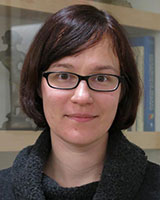非常抱歉,
你要访问的页面不存在,
非常抱歉,
你要访问的页面不存在,
非常抱歉,
你要访问的页面不存在,
验证码:

职称:Assistant Professor
所属学校:Tufts University
所属院系:Department of Anthropology
所属专业:Anthropology
联系方式:617.627.6528
PhD, Anthropology, The University of Chicago 2013 M.A. The University of Chicago 2008 B.A. The University of Virginia 2004
My research focuses on how postsocialist economies of health are shaped through the cultural politics of indigenous knowledge, the remaking of ethnoecologies, and the commodification of ethnic identities. I combine these theoretical concerns with an interest in the afterlives of Soviet scientific and state-building projects in Russia and Inner Asia. I am currently working on a book, provisionally titled Mixing Medicines: the Politics of Health in Postsocialist Siberia, which follows Russia's official medical sector’s attempts to reinvent itself through state-led initiatives of "medical integration" that aim to recuperate indigenous therapeutic traditions associated with the state's ethnic and religious minorities. Based in Buryatia, a traditionally Buddhist region on the border of Russia and Mongolia known for its post-Soviet revival of "Tibetan medicine" and shamanism, the book traces the uneven terrains of encounter between indigenous healing, the state, and transnational medical flows. I am also in the early stages of planning two future projects. The first is concerned with the production and regulation of herbal medicines in the Russian Far East. I am interested in the tension between the pharmaceutical industry's reliance on post-Soviet deindustrialized – and often ecologically dilapidated – areas as ideal sites for the collection of medicinal plants, and anxieties with the safety of the resulting medicines. The second project will examine the public health and ecological impacts of mining in Mongolia. At its core, both of these projects will interrogate how new forms of biological value that arise from "renaturalized" landscapes also materialize histories of industrial toxicity and risk.